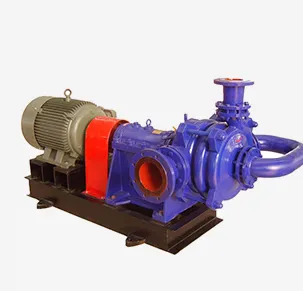Dutch
- Afrikaans
- Albanian
- Amharic
- Arabic
- Armenian
- Azerbaijani
- Basque
- Belarusian
- Bengali
- Bosnian
- Bulgarian
- Catalan
- Cebuano
- Corsican
- Croatian
- Czech
- Danish
- Dutch
- English
- Esperanto
- Estonian
- Finnish
- French
- Frisian
- Galician
- Georgian
- German
- Greek
- Gujarati
- Haitian Creole
- hausa
- hawaiian
- Hebrew
- Hindi
- Miao
- Hungarian
- Icelandic
- igbo
- Indonesian
- irish
- Italian
- Japanese
- Javanese
- Kannada
- kazakh
- Khmer
- Rwandese
- Korean
- Kurdish
- Kyrgyz
- Lao
- Latin
- Latvian
- Lithuanian
- Luxembourgish
- Macedonian
- Malgashi
- Malay
- Malayalam
- Maltese
- Maori
- Marathi
- Mongolian
- Myanmar
- Nepali
- Norwegian
- Norwegian
- Occitan
- Pashto
- Persian
- Polish
- Portuguese
- Punjabi
- Romanian
- Russian
- Samoan
- Scottish Gaelic
- Serbian
- Sesotho
- Shona
- Sindhi
- Sinhala
- Slovak
- Slovenian
- Somali
- Spanish
- Sundanese
- Swahili
- Swedish
- Tagalog
- Tajik
- Tamil
- Tatar
- Telugu
- Thai
- Turkish
- Turkmen
- Ukrainian
- Urdu
- Uighur
- Uzbek
- Vietnamese
- Welsh
- Bantu
- Yiddish
- Yoruba
- Zulu
Telephone: +86 13120555503
Email: frank@cypump.com
dec . 11, 2024 18:11 Back to list
'durable heavy-duty slurry pump designed for oem ...'
Durable Heavy-Duty Slurry Pump A Solution for OEM Applications
In the industrial world, the demand for reliable and efficient pumping solutions has surged, particularly in sectors involving abrasive and corrosive materials. Slurry pumps have emerged as a critical component in various applications, particularly for Original Equipment Manufacturers (OEMs) looking to deliver consistent performance under challenging conditions. Among the various types of slurry pumps available, the durable heavy-duty slurry pump stands out as a superior choice for professionals within the engineering and industrial fields.
Understanding Slurry Pumps
Slurry pumps are specially designed to transport fluid containing solid particles, making them an integral component in industries such as mining, construction, and wastewater management. Unlike standard pumps, slurry pumps are built to handle the unique challenges posed by slurries—mixtures of liquid and solid materials. Heavy-duty slurry pumps are particularly engineered for high wear resistance, allowing them to efficiently manage abrasive materials without compromising performance or longevity.
Key Features of Durable Heavy-Duty Slurry Pumps
1. Robust Construction Durable slurry pumps are typically constructed from high-quality materials, such as high-chrome alloys or rubber-lined components, which enhance their resistance to wear and tear. This robust construction ensures that the pump can withstand the harsh conditions present in industrial environments.
2. High Efficiency An efficient slurry pump not only minimizes energy consumption but also maximizes throughput. Heavy-duty models are designed with hydrodynamic principles in mind, optimizing fluid dynamics to ensure that slurries are moved effectively and with minimal energy loss.
3. Versatility The applications for heavy-duty slurry pumps are vast. They can be found in mineral processing, dredging, construction, and even in oil and gas industries for transporting materials like sand, gravel, and sludges. Their ability to handle a wide range of slurry compositions makes them an essential choice for OEMs aiming to serve diverse market needs.
'durable heavy-duty slurry pump designed for oem ...'

4. Customizability OEMs often require tailored solutions to meet specific operational challenges. Durable heavy-duty slurry pumps can be customized regarding size, materials, and design, allowing manufacturers to meet the unique specifications of their customers while ensuring optimal performance in real-world applications.
5. Low Maintenance One of the significant advantages of investing in durable slurry pumps is their low maintenance requirements. Designed for longevity, these pumps reduce operational downtime and repair costs, further establishing them as a reliable choice for OEMs focused on efficiency and reliability.
Applications in OEM Contexts
In OEM applications, the choice of a durable heavy-duty slurry pump can significantly influence product quality and operational efficiency. Whether designed for a mobile construction unit or integrated into a large-scale mineral processing facility, these pumps ensure that the critical flow and handling of slurries occur seamlessly.
Take the mining industry, for instance, where the extraction process generates substantial amounts of sludge. A heavy-duty slurry pump can transport this material to processing facilities, enhancing the overall productivity of the operation. Similarly, in water treatment facilities, these pumps are vital for handling sludge generated during purification processes.
Conclusion
For OEMs, the selection of a heavy-duty slurry pump is a crucial decision that impacts efficiency, durability, and overall project success. With their robust construction, high efficiency, versatility, and low maintenance requirements, durable heavy-duty slurry pumps offer a solution to meet the demanding challenges of transporting abrasive and corrosive slurries in various industrial applications. As industries continue to evolve and face new challenges, these pumps will remain indispensable tools in ensuring that operations run smoothly, safely, and efficiently. Embracing this technology not only supports the integrity of manufacturing processes but also reinforces the commitment to quality that OEMs aim to uphold in today’s competitive market.
-
ISG Series Vertical Pipeline Pump - Chi Yuan Pumps Co., LTD.|High Efficiency, Energy Saving, Low Noise
NewsJul.30,2025
-
ISG Series Vertical Pipeline Pump- Chi Yuan Pumps|High Efficiency&Low Noise
NewsJul.30,2025
-
ISG Series Vertical Pipeline Pump-Chi Yuan Pumps Co., LTD.|High Efficiency&Energy Conservation
NewsJul.30,2025
-
ISG Series Vertical Pipeline Pump - Chi Yuan Pumps Co., LTD.|Advanced Hydraulic Design&Energy-Efficient Solutions
NewsJul.30,2025
-
ISG Series Vertical Pipeline Pump - Chi Yuan Pumps Co., LTD.
NewsJul.30,2025
-
ISG Series Vertical Pipeline Pump - Chi Yuan Pumps Co., LTD.|energy-efficient fluid handling&industrial durability
NewsJul.30,2025










